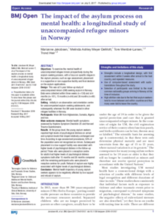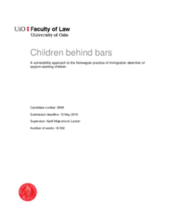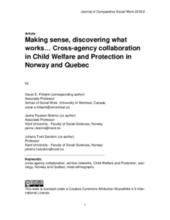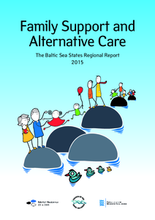Displaying 91 - 100 of 111
This article explores young people's experiences in the transition to adulthood from child welfare services and how Honneth's theory of recognition can be useful as an analytical tool to help us understand these experiences.
Informed by a cultural psychological approach to development, the authors analysed interviews with 18 unaccompanied Afghan boys and their professional caregivers.
This study examined the mental health of unaccompanied refugee minors during the asylum-seeking process, with a focus on specific stages in the asylum process, such as age assessment, placement in a supportive or non-supportive facility and final decision on the asylum applications.
This paper discusses how Norway is in a position where it needs to balance its interests in immigration control with its obligations under international human rights law to protect the rights and liberties of asylum-seeking children. This document emphasizes the importance of protecting vulnerable children. In general this paper analyzes the ways that Norway acknowledges and protects the vulnerability of asylum seeking children. It also discusses the jurisprudence in place in relationship to vulnerable asylum-seeking children.
This article from Reuters examines the response of Norway and other Scandinavian countries to the arrival of asylum-seeking girls under the age of 16 who are married, and how these girls are cared for and protected in the asylum systems.
The recent removal of five children from their parents’ home in Norway has called into question child protective services in the country.
This study seeks to understand collaboration dynamics in social services for determining what strategies work best in facilitating collaborative endeavors in specific policy and institutional environments.
To facilitate well-informed decisions, the researchers collected and disseminated evidence from systematic reviews (SR) to local child welfare stakeholders in Norway through plain language summaries. This article describes that process.
Norway’s child welfare agency (Barnevernet) has come under recent scrutiny for its practices regarding children of immigrant parents. According to the article, children of immigrant parents make up 40% of foster care placements.
This report was developed as part of a mapping study aimed at analysing the situation of alternative care and family support in the Baltic Sea Region, assessing the achievements since the 2005 Ministerial Forum and identifying relevant opportunities and challenges for the future.




